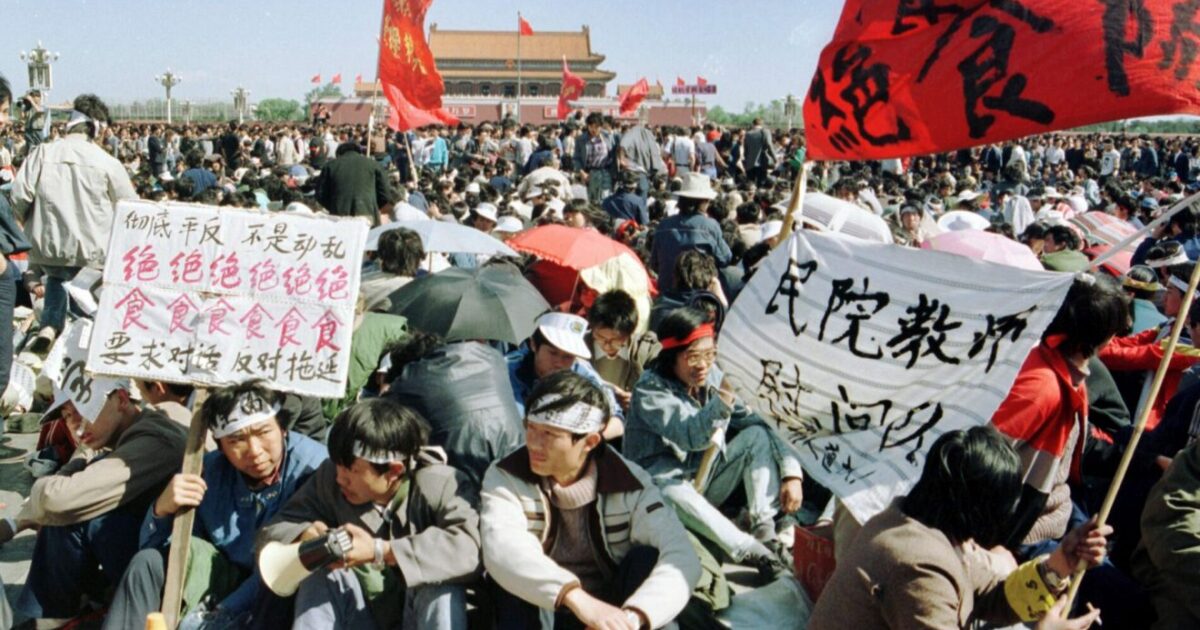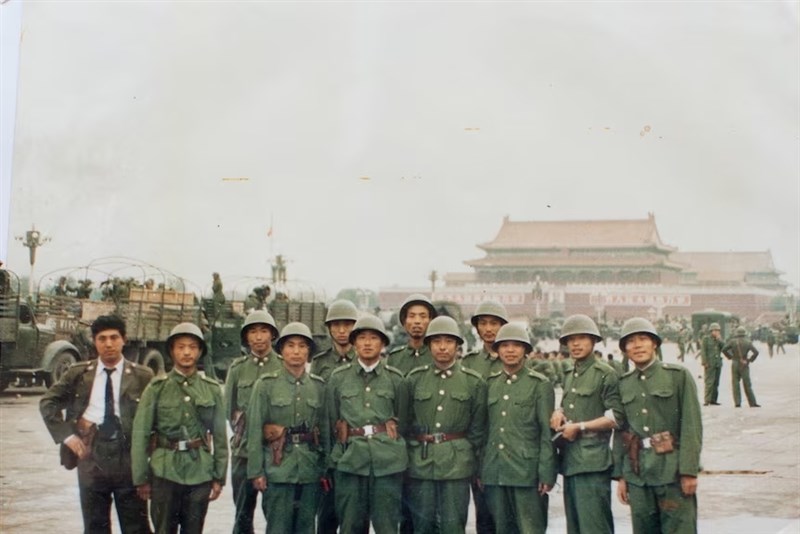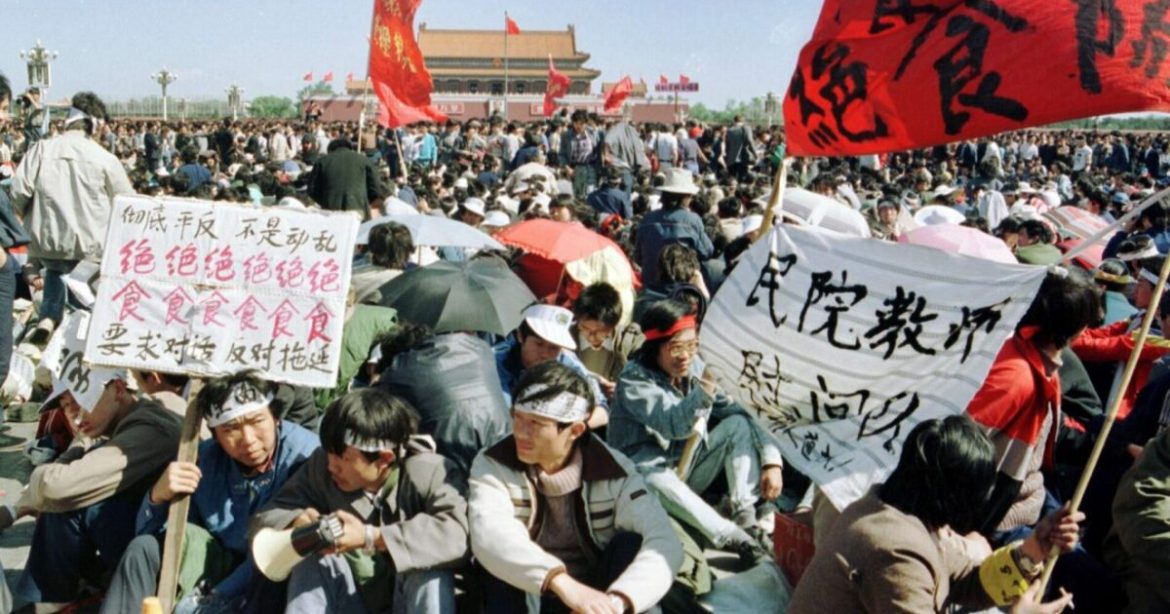

Today, June 4, 2025, marks 36 years since Chinese troops opened fire on pro-democracy demonstrators in Beijing’s Tiananmen Square, killing hundreds, possibly thousands, of civilians.
The Chinese Communist Party (CCP) has never released an official death toll, and the massacre remains one of the most heavily censored events in China’s history, second only to Mao’s Great Famine, which is estimated to have killed at least 30 million people.
Many Chinese citizens first hear of the event only after studying abroad and are so deeply brainwashed by state propaganda that they often reject eyewitness accounts, news reports, and even the famous footage of “Tank Man”, the lone protester who stood in front of a column of tanks the day after the massacre, symbolically blocking their path to prevent them from killing more people.
The Tiananmen Square massacre occurred in June 1989 when the CCP used military force to suppress a large, peaceful protest movement in Beijing. What began as a student-led demonstration grew into a nationwide call for political reform, freedom of speech, anti-corruption measures, and greater government accountability. Protesters were further motivated by economic discontent stemming from inflation, job insecurity, and growing inequality during China’s transition to a market-oriented economy.
The movement gained momentum following the death of Hu Yaobang, a reform-minded CCP leader popular among students. As protests intensified, divisions emerged within the party leadership. While General Secretary Zhao Ziyang favored dialogue, hardliners led by Premier Li Peng pushed for a military solution. Ultimately, Deng Xiaoping sided with the hardliners, declaring martial law. On the night of June 3–4, 1989, the People’s Liberation Army moved in and opened fire on unarmed civilians. The massacre was driven by the CCP’s determination to preserve one-party rule and crush what it saw as an existential threat to its authority.
Deng Xiaoping’s decision to side with the hardliners who authorized the use of military force against the protesters is especially significant because he is widely regarded as the economic architect of modern China. He is credited with opening China’s economy and lifting hundreds of millions out of poverty. But his support for the massacre sent a clear message: economic liberalization would not be accompanied by political liberalization. Since that time, the unofficial relationship between the CCP and the people in this effectively single-party state has been that citizens may get as rich as they want, as long as they do not demand greater freedoms or democratic rights.
In the era of Xi Jinping, who rose to power in 2012, even that unspoken arrangement has eroded. Under Xi, wealth accumulation has been reframed as a duty of a good communist: a means of strengthening the state. Meanwhile, rights and freedoms have been progressively restricted. Xi eliminated term limits in 2018, allowing him to remain in power indefinitely, and has built the most sophisticated digital surveillance regime in history.
China is estimated to have more than 500 million surveillance cameras, many powered by facial recognition and gait analysis. The CCP can track the movements of nearly any citizen throughout the day, where they went, who they met, and what they did.
All foreign media and social media platforms are banned. In their place, WeChat dominates life in China. It’s the world’s largest all-in-one app, combining messaging, blogging, ride-hailing, food delivery, banking, and digital payments. But every feature is closely monitored and controlled by the Communist Party.
China’s evolving social credit system, piloted in 2014, now scores citizens based on their loyalty and behavior. Criticizing the government, attending underground churches, or engaging in “unpatriotic” activity can lower one’s score. A low score can result in being barred from air travel, high-speed rail, banking services, or even leaving the country.
Alongside its repression of the Chinese mainland, the Chinese Communist Party (CCP) has intensified efforts to strip Hong Kong of its special rights and freedoms and to threaten Taiwan’s sovereignty. Prior to the passage of the National Security Law in 2020, Hong Kong operated under a “one country, two systems” model, with a completely separate legal system, its own passport that allowed visa-free travel to many first-world nations, and average salaries that exceeded those of the average American. Residents enjoyed freedom of speech, freedom of religion, and relative autonomy in governance.
However, after Beijing’s growing interference sparked mass protests in 2019, largely led by students, China imposed the National Security Law, effectively criminalizing dissent. The law led to the arrest of over 10,000 protesters, including student leaders such as Joshua Wong, who remains imprisoned with limited ability to communicate with the outside world. Since then, Beijing has systematically dismantled Hong Kong’s freedoms. Schools are now required to shift instruction increasingly toward Mandarin at the expense of Cantonese and to infuse their lessons with Communist Party propaganda and Xi Jinping Thought. Topics such as the Tiananmen Square massacre have been erased from curricula.
For decades, Hong Kong was the only place on Chinese soil where large-scale public commemorations of the Tiananmen Square massacre were permitted. Annual candlelight vigils in Victoria Park regularly drew tens of thousands of participants. That changed in 2020, when the Chinese Communist Party imposed the National Security Law, effectively banning the vigils and criminalizing any form of dissent. Organizers, including members of the Hong Kong Alliance in Support of Patriotic Democratic Movements of China, were arrested, and the June 4th Museum was forced to shut down in 2021. In 2023, authorities seized the “Pillar of Shame,” a prominent memorial statue, as part of a subversion investigation. That same year, Rowena He, a respected Tiananmen scholar, had her visa renewal denied and was dismissed from her teaching post at the Chinese University of Hong Kong.
Religious figures have also been targeted. Cardinal Joseph Zen, a high-ranking Catholic cleric and former Bishop of Hong Kong, was arrested in 2022 under the National Security Law on suspicion of “collusion with foreign forces” due to his role as a trustee of the 612 Humanitarian Relief Fund, which offered legal and medical aid to pro-democracy protesters. Although he was later released on bail and fined for failing to properly register the fund, his passport was confiscated. It was only in April 2025 that a court granted him permission to travel to the Vatican to attend the funeral of Pope Francis.
This week, the Chinese government continued to suppress all public remembrance of the Tiananmen Square massacre. Security around the square was heightened for the anniversary, and censorship efforts intensified to block any discussion or commemoration. The Foreign Ministry denounced international statements as foreign interference and distortion of history.
In stark contrast, people in Taiwan openly held vigils and public demonstrations, viewing both the Tiananmen massacre and the Hong Kong crackdown as urgent warnings.
President Lai Ching-te reaffirmed Taiwan’s commitment to remembering June 4, stating that democratic societies have a duty to preserve historical truth and honor those who gave their lives for human rights. A public vigil in Taipei’s Liberty Square featured a scaled-down replica of the “Pillar of Shame,” symbolizing Taiwan’s role in preserving the memory that Beijing seeks to erase.
The post Tiananmen at 36: Beijing’s War on Memory and Freedom appeared first on The Gateway Pundit.

